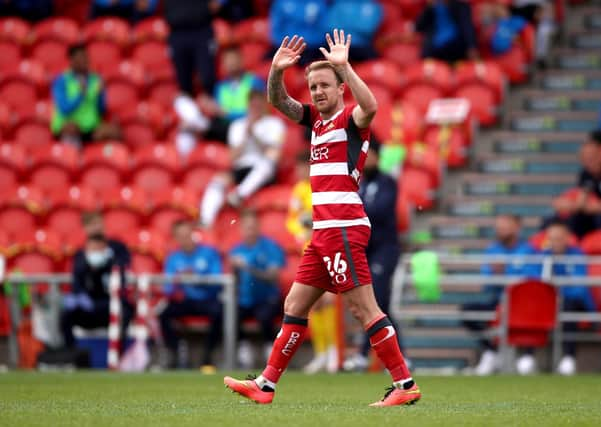Why club ambassadors play key roles in football - Stuart Rayner


Caretaker Butler’s “audition” as manager did not go well, but Rovers still value the 37-year-old, and will keep him on as manager of their women’s team, the Belles. Having hung up his boots at the grand old age of 40, a new role for Coppinger mentoring players will be finalised shortly.
Likewise, the day after being sacked as joint managers of Bradford City, Mark Trueman and Conor Sellars were laying a wreath at the annual memorial service to commemorate the Valley Parade fire – still part of the club, just a different part.
Advertisement
Hide AdAdvertisement
Hide AdEnglish clubs seem to be increasingly waking up to the importance of retaining people with a genuine understanding of what they stand for. Club ambassadors are becoming commonplace.
“It helps to have that little touch where people have that relationship with people there,” argued Butler recently.
“The fans know they’ve got a person with the club’s interests at heart.”
The best way to develop that bond is bringing local players through the youth system, ingraining the culture of the club, its values and what supporters demand. Butler’s Doncaster maybe suffered from having too many loan players, signed by predecessor Darren Moore, perhaps without enough of a stake in the club’s success.
Advertisement
Hide AdAdvertisement
Hide AdIt is a difficult trade-off because the talent Moore brought in, ordinarily out of the range of League One academies, put them in play-off contention in the first place but it is always more satisfying to develop your own players than polish someone else’s. Even clubs at the elite end of the pyramid, like Leeds United, benefit if one of their own, such as Kalvin Phillips, can mix it in that company.
Huddersfield Town, where Andy Booth is an ambassador, have made a point lately of bringing back local lads such as Fraizer Campbell and Duane Holmes, American born but West Yorkshire bred.
Outside talent and fresh ideas are needed too, and sometimes players join with no attachment and build a very special bond. No one would question Norfolk-born Paul Warne’s love for Rotherham United 22 years after he joined them probably more to put bread on the table than anything else.
Coppinger did not grow up in Guisborough a Doncaster fan, but his tearful farewells when he hung his boots up at the weekend showed he had fallen as madly in love with the club as Balby-born Butler.
Advertisement
Hide AdAdvertisement
Hide AdThat ingrained understanding of what a club means will make Rotherham and probably much more so Sheffield Wednesday’s relegation so damaging. Jobs will be lost and not just high-profile ones but plenty of lesser-paid, unseen positions filled by fans who sometimes without realising help players, coaches, perhaps at times even the chairman, better understand what their club is about with a comment here, a memory there, as they work in the laundry room, the ticket office or on reception.
It might sound trivial but it matters.
Football clubs are institutions fans need to feel connected to. That has been harder this season than any other with the gates locked to them.
Take away that sense of identity, the feeling of what makes it special, and it just becomes another bog-standard company, another employer.
Sheffield United fans could take pride in recent years from watching their team succeed the Blades way under the management of Chris Wilder, and with Billy Sharp as captain.
Advertisement
Hide AdAdvertisement
Hide AdFew clubs nowadays can have a Tony Stewart the local businessman who owns Rotherham, and there will have been times when some Millers fans would have swapped him for someone with pockets deeper than his connection to the club. That makes it more important to scatter loyalists around the imported expertise and/or wealth.
The decision to dispense with Trueman and Sellars was puzzling not in itself – they lost nine of 19 matches as “permanent” managers – but because it came so soon after they convinced Bradford they were right to step up from the interim job. But in fairness to the Bantams, like Doncaster they have stayed true to their belief that these are managerial talents, asking Trueman and Sellars to remain within the club.
Clubs can always buy new players but what the likes of Stewart, Wilder, Coppinger, not to mention the cleaners and kitmen we do not even know the names of, is every bit as valuable.
Support The Yorkshire Post and become a subscriber today. Your subscription will help us to continue to bring quality news to the people of Yorkshire. In return, you’ll see fewer ads on site, get free access to our app and receive exclusive members-only offers. Click HERE to subscribe.
Comment Guidelines
National World encourages reader discussion on our stories. User feedback, insights and back-and-forth exchanges add a rich layer of context to reporting. Please review our Community Guidelines before commenting.